August 05, 2022 ✒ Andrew Kantor
It’s 3:00 am and you’re not in a Denny’s mood. How about getting a Covid test instead? Good news: The Georgia Department of Public Health has opened a bunch* of 24/7 kiosks throughout the state offering free tests. (Here’s the map.) Fill out the quick form and the kiosk dispenses a kit. Swab, dip, etc., and put it back in the kiosk. The next day it’ll be picked up and given a super-accurate PCR test — you’ll be notified of the results by email or text. Pharmacists, do you have enough continuing ed under your belt to renew your license? If not, no worries — GPhA has ways of Gives you 23.0 hours of CPE (in person plus home study)! In-person sessions: Sunday, August 21 —or— Sunday, December 11 (8:00 am – 5:00 pm) in GPhA’s Sandy Springs classroom Click here for details and to register. Gives you 21.0 hours of CPE (in person plus home study)! Live via Zoom; Sunday, September 18 (8:00 am – 5:00 pm) Click here for details and to register. Gives you 20.0 hours of CPE (in person plus home study)! In-person session: Sunday, October 2 (8:30 am – 12:30 pm) in the GPhA Sandy Springs classroom Click here for details and to register. A big GPhA Buzz shout-out to GPhA member Al Dixon of Richmond Hill Pharmacy in Bryan County, who was featured in a WSB-TV story on rising drug prices. Specifically, it was based on AARP of Georgia s reminding everyone that drug prices have risen “73% in the last seven years, hurting Georgia’s seniors.” And who’s to blame? PBMs. (Yeah, the article misspelled his name. Over and over. ) The CDC is expected to update it’s don’t-get-Covid guidelines in the next few days “to ease quarantine recommendations for people exposed to the virus and de-emphasize 6 feet of social distancing.” It’s also going to “de-emphasize regular screening testing for Covid-19 in schools” and stick with its test-to-stay strategy. All this, of course, assumes that there won’t be a major surge when students return to school and an unexpected definition of “cultural studies.” It’s now officially a public health emergency in the US. That just means more hyperactive news stories … and more importantly, “Federal health officials can now expedite preventative measures to treat monkeypox” and have some more flexibility in how they do it. Luckily, it’s rarely fatal (but very uncomfortable) and only spread through intimate skin-to-skin contact. There’s a monkeypox vaccine (although it can be hard to get), but what about treatments? One that’s out there is TPOXX (aka tecovirimat) which is approved to treat monkeypox’s nasty cousin, smallpox. And while TPOXX has been tested for monkeypox on animals, it’s still officially an investigational drug when it comes to humans. So if you want to use it here in the US of A, that means paperwork. Lots of paperwork. Will that change now that this is an emergency? Should it? Read on. The Brits have identified new symptoms of the disease. Upon reading the headline, I thought to share those new symptoms with you. Upon reading the article, however, I prefer to simply provide the link. For those of you who clicked and read, here’s a picture of a bunny and a kitten: Some moles don’t know their place. Rather than sit still and maybe be the subject of an awkward glance, they start to grow until they become melanoma, the really bad skin cancer. Why do some have to be that way? Who hurt them? Who did this to them? Boston University researchers think they know. If they’re right, it could open the door to treatments not only for melanoma (and pre-melanoma) but potentially other types of cancer. It’s all about the Hippo tumor suppressor pathway which, to oversimplify, tells cells when to stop growing. When the Hippo tumor suppressor pathway is itself suppressed, “those cells rapidly go on to form melanoma in multiple experimental models.” Keep it working properly, and moles stay moles. Next up, as always, more research. CVS announced that it’s joining Amazon, Walgreens, and that group of hobos under the bridge and getting into the primary care business. The company wants to offer longer hours at its doctor [sic] offices so people can visit as early as 6 a.m., as late as 9 p.m., or on the weekends. Completely unrelated, America’s physician shortage continues to the point that Time magazine is offering solutions. Also unrelated, a new study out of the University of Chicago found that “It would take a primary care physician 26.7 hours per day to follow national recommendation guidelines for preventative, chronic disease and acute care for an average number of patients.” The Brits are simply not satisfied with how well bleach works to kill germs. It’s just too slow. A northern-England hospital had an idea: a disinfectant based on hypochlorous acid, a natural compound that also comes from chlorine and is used in the U.S. as a disinfectant. They call their product Pathisol, and researchers at Teesside University (home of Barry the Beaver) are testing it in a clinical environment for the first time, misting entire wards with the stuff. The benefit, if it pans out: “Pathisol can disinfect a surface in two minutes, which is five times faster than bleach. It can also kill 99.99% of pathogens, including hospital superbug Clostridium difficile.” It’s also cheaper to make than bleach and more environmentally friendly — and you get to apply with a cool spray gun.CDC relaxes (for now), CVS has big plans, Georgia gets Covid-testing kiosks, and more
Covid kiosks
* We didn’t bother to count.
It’s a license renewal year
making you talk helping you meet your requirements tout de suite, and get some spiffy certificates for your wall while you’re at it.APhA’s Pharmacy-Based Immunization Delivery Certificate Training Program
APhA’s Delivering Medication Therapy Management Services Certificate Training Program
NASPA’s Pharmacy-based Point-of-Care Testing Certificate Program
You can call him Al
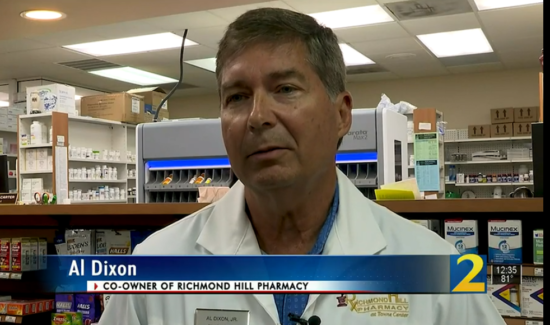
CDC say relax
Monkeypox updates
Urgent, urgent, emergency
Whither TPOXX?
Eeew

When moles go bad
CVS on the bandwagon, but who’ll drive it?
Disinfecting: Better, stronger, faster

August 04, 2022 ✒ Andrew Kantor
As the school year starts, an Adderall shortage is the last thing we need, and yet here we are. Both 20-mg and 30-mg tablets of Teva’s branded ADHD drug Adderall are currently on back order in the U.S., with the company eyeing a release date in early- to mid-August. Teva not only makes Adderall, it also makes most generic amphetamine salts, but the company says not to worry, “[We] expect full recovery for all inventory and orders in the coming weeks.” It’s almost time to render unto Mary that which is Mary’s. (Meaning Mary Ritchie, GPhA’s director of membership.) Your GPhA 2022–23 dues invoice will be coming to your mailbox soon, so keep an eye out. And please, if you would be so kind as to send it back quickly, it’ll make Mary’s life a bit easier. Thank you! Would you like your pharmacy to appear in on a reality show called “Show Me” — if we promised that it would not require compromising your virtue? If so, NCPA is looking for you. Think of it like “Kitchen Nightmares” or “Bar Rescue” but with less cursing and alcohol, and more lab coats and plastic bottles. “Show Me” will feature “NCPA members facing typical pharmacy challenges who get the help they need from some peers who’ve been there and done that.” You and your pharmacy could be on it — you just need to apply with a video to prove you’ve got what it takes for your close up. Click here for the details, some tips, and the submission form. Being cold, it seems, inhibits cancer growth. That’s what Swedish researchers discovered, and the mechanism is actually quite simple: [C]hilly temperatures activate heat-producing brown fat that consumes the sugars the tumors need to thrive. Similar metabolic mechanisms were found in a cancer patient exposed to a lowered room temperature. They even did some preliminary human testing and found that being at about 60°F vs. 82°F makes a difference — “The imaging scans picked up increased brown fat and lowered tumor glucose uptake during the lower versus the higher temperature.” Yesterday, the hospital-owned nonprofit Civica Rx launched CivicaScript, and it began selling it’s first drug, abiraterone, for a lot less that the list price. A month’s supply of abiraterone 250 mg will be sold to pharmacies for about $160 a bottle with a maximum retail price of $171 — about $3,000 less than the average price for someone with Medicare Part D coverage. More interesting for those with crystal balls is that CivicaScript is part of a larger trend of non-profits arising to take on the pharmaceutical companies — and high drug prices — by offering cheaper generics and price transparency. Separate studies out of Israel, the US, and Japan all conclude — to one degree or another — that three (or preferably four) doses of an mRNA vaccine protects people from Omicron. Not perfectly, but it reduces the risk of symptoms and hospitalization enough to say, “It’s effective.” This wouldn’t be the Covid pandemic if there wasn’t one snag after another. Today’s (well, yesterday’s) hiccup: Although the EU, like the US, has approved Novavax’s Covid-19 vaccine as an alternative to the two mRNA shots out there, the European Medicines Agency now wants that vaccine to carry a warning that both myocarditis and pericarditis are potential side effects, in addition to the existing “severe allergic reactions.” Eating a bit of Jarlsberg cheese — and only Jarlsberg cheese — “may help to stave off bone thinning,” according to a study out of the Norwegian University of Life Sciences. But before you rush out to the dairy section, note that the study was funded by Tine, “Norway’s largest producer, distributor and exporter of dairy products.” (Oh, and if you’re thinking, “I‘d rather have Camembert than Jarlsberg,” I have bad news for you.) Side reading: Experts call into question some significant limitations of the study. Chillin’ the cancer, Adderall shortage, grain-of-salt cheese news, and more
Potential slow start to the school year
Dues renewal is nigh!
If you show me yours…
Good news for Walt Disney
The Short Read: CivicaScript Debuts edition
Latest Covid vaccine news
Three studies, one variant family
Novavax warning
Bring cheeses into your life?
August 03, 2022 ✒ Andrew Kantor
Here’s a surprising bit of news: There are apparently a bunch of online pharmacies — “rogue” pharmacies, mind you — selling chemotherapy drugs like imatinib without proper prescriptions. The research (by UNC School of Pharmacy researchers) was straightforward: They simply searched online for where to buy chemo meds to get an idea of the scope of the problem. “By simply searching Google, Bing, Yahoo, and DuckDuckGo, we found 44 websites that sold and shipped imatinib in the U.S.; 13 of these websites sold imatinib without a prescription, and more than three-quarters did not offer a way for patients to speak with a pharmacist. This is a significant concern for patient safety.” And that’s based on just the first 10 pages of search results. (Fun fact: You can actually look past the first page of results. Who knew?) They didn’t actually buy any of these drugs, but they point out that … well, let’s just say that quality control might be lacking, although the prices were often significantly lower than patients would normally pay — the very reason these sites exist. Columbia University researchers have created a database of nearly 20,000 potential pediatric adverse drug events (ADEs) — interactions that can occur at all stages of development, many of which haven’t been reported yet. That last part is the gem: Existing databases, such as the FDA Adverse Event Reporting System, “only capture data from patients who experienced adverse events,” while the Columbia database uses computer modeling to identify issues before they occur. The database, which is made freely available (via a site called PDS Portal), isn’t meant for clinical use; it’s designed for drug researchers, although “Clinicians can use it as a gut check.” Banana Boat is recalling some batches of its Hair & Scalp Sunscreen because it may contain benzene, which you don’t want anywhere near you. It’s only three lots, and it doesn’t (yet) affect any other Banana Boat products. Get the deets from the official FDA recall page. Two types of meds — beta blockers and antiplatelet drugs (including aspirin) — increase your risk of heart attacks in hot weather. Somehow (the Yale researchers who discovered this don’t know how) they make the heart more susceptible when the weather gets warmer. Antiplatelet medication use was associated with a 63% increase in risk and beta-blockers with a 65% increase [in heart attacks]. People taking both drugs had a 75% higher risk. Non-users of those medications were not more likely to have a heart attack on hot days. To get even more complicated, statins tripled the risk of heart attack for younger people on hot days, but didn’t have that effect on older patients. If you’ve had a kidney stone, there’s a good chance you never want another. The folks at the Mayo Clinic have some advice: Make sure you’re getting enough calcium and potassium. Their new study looked not at preventing first time kidney stones, but at stopping recurrence. Some of their findings aren’t surprising, such as “drink more fluids.” But the surprise was that “Low dietary calcium and potassium was a more important predictor than fluid intake of recurrent kidney stone formation.” The study concludes that diets with daily intake of 1,200 milligrams of calcium may help prevent first-time and recurrent kidney stones. [It didn’t have a specific recommendation for potassium, so take your best guess.] As the legalization of marijuana spreads, so too do the number of studies on the stuff — including some with eyebrow-raising conclusions. (Not, like, shocking. Just unexpected.) For example, smoking marijuana might reduce incidence of sinus problems like congestion, sneezing, and sinus pain … at least according to a study from USC’s Keck School of Medicine. The study of nearly 2,300 U.S. adults found that while cigarette smokers were often plagued by such symptoms, the same did not hold true for regular marijuana users. Actually, they don’t know which way the causation goes, so it’s possible “people who already have nasal or sinus symptoms might steer clear of marijuana.” The mantra, as always: “The only way to find out […] is with further research.” Why does eating too much red meat increases the risk of heart problems? We know it does, but what’s the mechanism? A surprising (possible) answer comes out of Tufts University: It’s the gut bacteria. “Chemicals produced in the digestive tract by gut microbes after eating red meat may help explain part of the higher risk of cardiovascular disease associated with red meat consumption.” Not that cholesterol and salt are helping, but gut bacteria produces trimethylamine N-oxide (TMAO) when it digests red meat, and high levels of TMAO are double-plus ungood for people, with links to cardiovascular issues, kidney disease, and diabetes. In other words, by eating red meat you’re feeding bacteria that, er, expels poison into your gut. A lot of hospitals have “smart” IV infusers that can automatically calculate the correct dose and rate for delivering drugs, but — at least in Britain — many aren’t used “because they are difficult to configure and maintain.” So instead of a pump that’s configured by a pharmacist and smart enough to sound an alarm if something’s amiss, you have a dumb pump “set by ward staff who calculate and input infusion rates themselves — increasing the risk of drug errors.” That’s what researchers from Manchester, England, England* found based on data from the UK’s National Health Service; they calculated that “1 in 10 IV drug administrations are associated with an error, and up to 1 in 10 of those were associated with harm.” Heart meds hate heat, red meat secret revealed, cancer-drug shenanigans, and more
Rogue chemo drugs
Big new drug-interaction database
ICYMI: Banananana Boat recall
Heat, meds, and heart attacks
Stopping stones: Water good, calcium better
What cannabis can do (entry 261)
Why is red meat bad?
Smart IVs, safe patients
* Across the Atlantic sea
August 02, 2022 ✒ Andrew Kantor
Diabetics taking higher doses of insulin have a higher rate of cancer, especially if they’re insulin-resistant. Yeah, read that again. The findings, out of Ohio University, are based on health records of 1,300 patients over 28 years, so the increase can take a long time to appear. (And the it’s further muddied by the idea that having diabetes itself might raise the risk of cancer.) Of note is that insulin-resistance. The epidemiologists who ran the study suggest that, to mitigate cancer risk, “improving insulin sensitivity may be preferred than simply increasing the insulin dose.” Is it time to renew your workers’ compensation or business liability insurance? Talk to Hutton Madden first: (404) 375-7209 or hutton.madden@phmic.com. The U.S. hit a new low for the number of uninsured people — only about 8 percent of Americans are now without some kind of medical coverage according to the latest CDC data (PDF). This is the lowest level in … well, in the modern, employee-based-healthcare era. The bad news: A lot of people will be unable to afford coverage when this calendar year ends, because that will also end pandemic-related measures to help people pay for insurance. The good news is that Congress might vote to keep them in place, along with support for people in states that haven’t yet expanded Medicaid coverage. For quite a while (i.e., more than 50 years), Asians and Eastern Europeans have been using cytisine as drug to help quit smoking; it’s a partial agonist against nicotinic acetylcholine receptors*, like Chantix (aka varenicline), but it’s “natural” in the sense that it’s a plant alkaloid. Canada only just approved it a few years ago, but in most of the Western world it’s eclipsed by Chantix — in fact, my spell-checker recognizes varenicline but not cytisine. Why is that? For one, previous studies found that while cytisine is better than placebo, it’s not quite as good as varenicline. For two, varenicline makes some companies a lot of money. But varenicline has issues (suicidal behavior, anyone?) so in 2018 the FDA approved a study of cytisine on our freedom-blessed shores. So, does it work? The result is an rock-solid, unequivocal “It seems to, yeah”: “At the 12-month follow-up, the quit rate was 32.1% in the intervention arm and 7.3% in the control arm.” One interesting note: The researchers who conducted the previous study suggest that “populations more accepting of ‘natural’ products would respond better to cytisine than to varenicline.” It’s just three weeks away — GPhA’s Immunization Delivery Training for Pharmacy Technicians! In half a day — 3 hours at home, 3 hours in the classroom — you’ll score yourself 6.0 hours of CE, and be able to tell your boss that you are 100% ready to give immunizations. With the coming Covid surge, monkeypox, and whatever else is on the schedule, you want to be ready. And GPhA will make sure you are. Sign up now for the live training on Saturday, August 20 in Sandy Springs. Space is limited, so don’t wait! Click here for all the details and to register! If you have a roundworm (C. elegans) that you want to live forever, what’s the trick? One way: Improve its mitophagy — the mechanism for replacing worn-out mitochondria*. That mechanism, though, wears out with age, leading to a lot of dead mitochondria lying about, and thus unhealthy cells. But now Israeli researchers say they’ve found a way to keep the mitophagy going strong, using molecules they created (“distinct designer diamines”) that … … promote mitophagy, and thereby enhance healthspan in C. elegans and protect human cells against oxidative damage. Naturally, they’ve already formed a company to try to turn the discovery into an actual drug. Eventually. Could it be a “one-two punch” from the varicella zoster virus (VZV) ‘waking up’ the herpes simplex virus (HSV-1)? Both viruses were known to maybe kinda sorta have a connection with Alzheimer’s, but now a collaboration between researchers at Oxford and Tufts universities found that individually they aren’t a danger but … … exposing brain cells harboring dormant HSV-1 to VZV led to a reactivation of the herpesvirus and a cascade of the toxic plaques known to be signs of Alzheimer’s. The fact that VZV can reactivate the herpes virus doesn’t mean that other viruses can’t do the same. The critical bit of info, they feel, is that reactivating dormant HSV-1 might be a trigger for Alzheimer’s disease, and that needs to be explored. Not many drugs have gone from prescription to over-the-counter lately, and here’s an interesting reason: The U.S. doesn’t have much of an “behind-the-counter” alternative, where customers must ask for a medication and (in theory) get advice or consultation with a pharmacist. That might be changing, as the FDA considers a new rule called “Additional Condition for Nonprescription Use.” (Then again, the idea has been around for at least a decade, so don’t hold your breath.) If the rule is approved, though, it could open the gateway to a lot more no-prescription-needed drugs, giving the FDA a way to split the difference when it comes to meds that seem almost safe enough to be on the rack, but not quite. The answer will keep changing as new studies come out, but the latest — courtesy of the American Heart Association, and based on “An analysis of physical activity and medical records for more than 100,000 people over 30 years” — says the answer is [insert drumroll here] … … at least 300 minutes of moderate physical activity per week, or 150 minutes of vigorous activity. “What?” you say, “That’s not what the headline reads.” True — the headline is the current guideline. What the story says is that there’s an increased benefit for doing two to four times that. The reduction [in mortality] was 21-23% for people who engaged in two to four times the recommended amount of vigorous physical activity, and 26-31% for people who engaged in two to four times the recommended amount of moderate physical activity each week.Immortal Israeli roundworms, OTC alternative, insulin’s cancer risk, and more
Unexpected insulin danger
Hutton is waiting
U.S. hits a positive milestone
A different anti-smoking tool?
* I think I got that grammar right.
Techs: Get that immunization training!
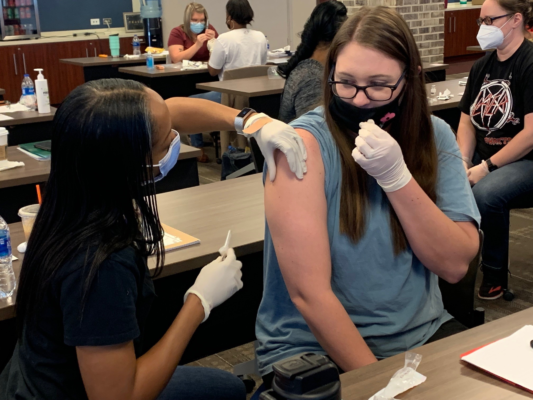
Did Israelis find the key to immortality?
* All together now: “The powerhouse of the cell.”
Today’s potential Alzheimer’s cause
Between the rack and your counter space
What’s the right amount of exercise to live longest?
July 30, 2022 ✒ Andrew Kantor
Post-menopausal women dealing with osteoporosis can take teriparatide — but there’s an important note. The synthetic hormone will restore their bones’ mineral quality, but it has to be taken for 24 months — not fewer. “[T]he full benefits of teriparatide treatment on forming bone quality are realized only with a full-course treatment,” said the leader of the Austrian team whose study figured this out. And there’s good news: After two years, the women’s bone quality was “similar to that of healthy premenopausal women.” Congrats to the team from the UGA College of Pharmacy, who — along with the University of Arkansas for Medical Sciences (last year’s winner) and University of South Carolina (don’t call it “USC”) — are finalists for NCPA’s 2022 Student Business Plan Competition. It’s not clear what the next step is, but whatever it is, we’re pulling for the Dawgs! The winners will receive two cash prizes (amount unknown) — one for the team’s NCPA student chapter, and one for the team’s school to promote independent pharmacy. More importantly, they get a year of bragging rights. So here’s where we stand with Covid booster shots for the fall: The FDA said that people under 50 won’t need a booster yet — it’s saying wait till the fall when Omicron-specific boosters are available. To make sure they are available, the U.S. has arranged for 66 million doses of an updated version of Moderna’s vaccine. Combined with 105 million doses the government already agreed to buy from Pfizer […] the latest deal puts the U.S. booster dose supply at about 171 million shots. Transparent face shields are popular among the more cautious people when in a potential Covid-catching situation. They add an extra layer of protection without interfering with breathing or speaking. Well, bad news. Turns out most of them don’t do much after all. British researchers put them to the test using a “coughing machine” (really) that spewed out dyed droplets onto shielded mannequin heads. Result: “The lab tests showed that all of the face shields provided some protection, but none gave high levels of protection against external droplet contamination.” That’s because there were gaps, and people turn their heads (and droplets get caught in air movement). You need a pretty big shield — “closed across the forehead and extended well around the sides of the face and below the chin” — to be effective. That’s the headline I would use if I was running a tabloid. The reality is that “Eating More Ultra-processed Foods [is] Associated with Increased Risk of Dementia,” and ketchup happens to be one that’s mentioned. Ultra-processed foods are high in added sugar, fat and salt, and low in protein and fiber. They include soft drinks, salty and sugary snacks, ice cream, sausage, deep-fried chicken, yogurt, canned baked beans and tomatoes, ketchup, mayonnaise, packaged guacamole and hummus, packaged breads and flavored cereals. (Note that the article’s definition of “ultra-processed food” doesn’t quite jibe with the typicaldefinition. Add salt to peanuts and they’re “processed”; to be “ultra-processed” they need to have several additives, and possibly colors and flavors, too.) There have been three waves of opioid deaths over the past two decades — that’s the “opioid crisis.” We’re entering a fourth wave now, say researchers at Northwestern, and it’s going to be a bad one. The first three waves were caused by (in large part) opioid pills, heroin, and fentanyl, respectively. The fourth wave is fueled by “combining synthetic opioids with stimulants such as cocaine and methamphetamines.” “This is a bigger problem because you have people misusing cocaine and methamphetamines along with an opioid, so you have to treat two things at once, and the fentanyl is horribly volatile.” First: “Peanuts Help Weight Loss, Blood Pressure, Glucose Levels” (funded by the Peanut Institute of Albany, Georgia). Second: “Daily Avocados Intake Improves Diet Quality, Lowers Cholesterol Levels” (funded by the Avocado Nutrition Center). A study out of Rush University found that strawberries — actually, a compounded they contain called pelargonidin — might reduce the risk of Alzheimer’s by reducing the “neurofibrillary tau tangles” in the brain: “The data suggests that pelargonidin may protect the aging brain from developing Alzheimer’s disease pathology.” “We suspect the anti-inflammatory properties of pelargonidin may decrease overall neuroinflammation, which may reduce cytokine production.” Notice all the “mays” and “mights”? Yeah, this is a bit preliminary. The big question here at Buzz HQ: Who funded the study? It would cost €27.50 to find out, which is €27.50 more than our budget for scientific papers. Results of a survey released by the American Medical Association found there’s a small percentage of Americans with very interesting views about their healthcare data. Face shield failure, the next opioid wave, strawberries vs Alzheimer’s, and more
Teriparatide: All you need is just a little patience
UGA’s plan enters competition finals
* Technically the Good Neighbor Pharmacy NCPA Pruitt-Schutte Student Business Plan Competition (GNPNPSSBPC)
Fall booster plans
Shields up! (or not)

This’ll work — flower not required
Ketchup can lead to dementia
I see trouble on the way
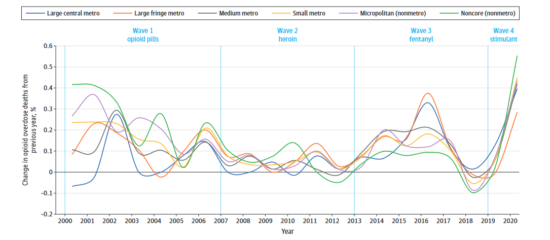
Nutrition news
I hope they have lots of grains of salt at Texas Tech
But what about strawberries?
Not everyone’s worried about healthcare privacy
July 29, 2022 ✒ Andrew Kantor
Some people forget that the “F” in FDA stands for food — not federal or farmaceutical. So a pair of U.S. congresscritters — one in the House, one in the Senate — are proposing that FDA be split, with the food portion becoming its own agency: the Food Safety Administration. …to protect the public health by ensuring the safety of food, preventing foodborne illness, maintaining safety reviews and reassessments of food additives, enforcing pesticide residue tolerances, improving the surveillance of foodborne pathogens, and for other purposes. Trigger warning: Some people may be disturbed by the fact that one of the legislators has purple hair. Take out life’s frustrations on innocent clay disks TK, eat some awesome barbecue, hang out with friends, drink some beer if you’re so inclined, and shoot things. (Not in that order.) Ready. Aim. Phire! is always a ton of fun, a chance to get outside and remind yourself about that big yellow ball in the sky, and something something network with colleagues. And shoot things without legal repercussions. All to help support the Georgia Pharmacy Foundation. Sporting clays, you ask? It’s like a cross between — oh, forget it. You get a big gun. You shoot clay disks in the air. There’s scorekeeping, competition, golf carts, and fully paid insurance premiums. We’ll even throw in a raffle. It’s all on the Big Red Oak Plantation: 2500 acres of primeval hunting land* a mere 60 miles south of Atlanta in Gay, Georgia (map). Come alone and we’ll get you on a team, or bring three friends and you’re all set. Got some money burning a hole in your pocket? A variety of sponsorships are also available. Deets: Friday, September 16 1:00 – 5:30 p.m. The FDA is proposing a big ol’ revision to the National Drug Code Format — and by big, we mean converting 10-digit NPCs to 12 digits. It would be similar to the existing format, but the company (“labeler”) and package sections would have an extra digit, and all the digits would be used (i.e., the product code would be four digits, not three or four). It’s a bit like the Y2K problem (kids, ask your parents); the 10 digits in current NDCs are no longer enough. Also, this would standardize the country’s entire drug-numbering system. [T]he proposed standardized format would facilitate the adoption of a single NDC format by all stakeholders. Such an adoption would eliminate the need to convert NDCs from one of FDA’s prescribed formats to a different standardized format used by other sectors of the healthcare industry (e.g., healthcare providers and payors). And in case you’re wondering, “FDA intends to convert existing NDCs on its own […] by adding leading zeros to the appropriate segments.” A single-shot rabies vaccine has passed its first hurdle — it “performed even better than we had expected” in phase-1 trials, according to the University of Oxford researchers working on it. If it continues to succeed, it could replace the expensive, multiple-dose vaccine we have today. Could vitamin B5 help mice lose weight? We wouldn’t ask if the answer wasn’t Maybe. Pantothenate acid, B5 to most of us, seems to stimulate the production of the brown — i.e., the good — fat in mice. Brown fat burns calories, as opposed to white fat which just sits there and embarrasses you at the beach. But white fat can be converted to brown fat, and Chinese biologists found that B5 might just help that happen. It worked in human cells in vitro, and in mice in cage-o: The vitamin B5-treated high-fat mice showed reduced fat not only overall but, specifically, less fat just under the skin and in the liver compared to those not given vitamin B5. The two groups had a comparable amount of muscle, a sign the weight loss was from reduction in fat. Their work was published in the American Journal of Physiology-Endocrinology and Metabolism, and includes this helpful graphic: Looking for a better way to help your diabetic patients treat skin ulcers? Have you considered purified, pureed frog skin? Singaporian scientists did! They found that collagen extracted from blended frog skins can be made into a biodegradable, biocompatible patch that… …will speed healing by providing a porous layer for white blood cells and healing agents to coagulate within. It will then also serve as a protective barrier, which will further enhance healing by keeping the wound moist. (If you’re up to date on this stuff, you might know that cows are being tested for similar purposes. But amphibian-derived collagen might be more compatible with humans. Take from that what you will.) You should know that you can write prescriptions for Paxlovid (under certain circumstances). But with greater power comes greater responsibility — that is, paperwork. The good folks at NCPA have a four-page PDF that’ll help you cross your i’s and dot your t’s to be sure you’ve got your Paxlovid workflow flowing in terms of documentation, billing, and space requirements. Instead of delivering a Covid vaccine via needle, using a patch seems to be a lot more effective — no matter what kind of vaccine it’s delivering. Aussie molecular bioscientists were testing a new vaccine that’s delivered by skin patch, and they found it “appeared to counteract new variants more effectively than the current SARs-CoV-2 vaccine delivered by injection.” Good news! Even better: The patch system, they say, also improves the efficacy of other vaccines — likely because it “precisely delivers the vaccine into the layers of the skin which are rich in immune cells.” “We found that vaccination via a patch was approximately 11 times more effective at combatting the Omicron variant when compared with the same vaccine administered via a needle.” Cold sores — caused by the herpes simplex virus — affect nearly half the globe. British scientists, curious how it evolved, were finally able to sequence the virus’s genes for the first time. That led to an interesting finding: Despite herpes affecting us and our ancestors for millions of years, about 5,000 years ago one particular strain became dominant; the others disappeared. So what happened 5,000 years ago? Two things. First, humans’ big migration into Europe. But more importantly, we started kissing. Instead of occasional mom-to-infant transmission of many strains, once we started snogging behind the metaphorical bleachers, today’s HSV-1 took over and hasn’t changed. [A] virus like herpes evolves on a “far grander timescale” than COVID-19, which the world has watched mutate in a matter of months. “Facial herpes hides in its host for life and only transmits through oral contact, so mutations occur slowly over centuries and millennia.” Frog skins for diabetics, splitting the FDA, 5000 years of kissing (and herpes), and more
Taking the F out of the FDA?
Sign up today for Ready. Aim. Phire!

Click here for more info and to sign up. Now!* No, there are no dinosaurs. Still, please don’t step on any butterflies.
FDA could revise NDC system
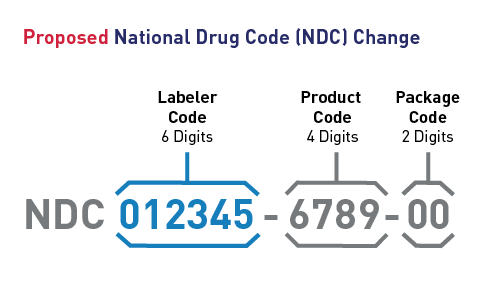
Rabid development
A vitamin for better fat
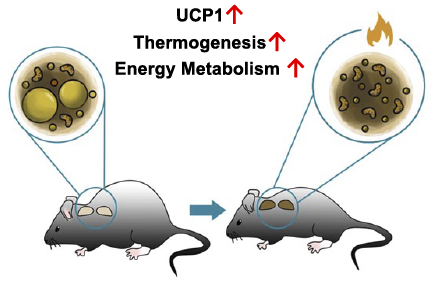 q
qDon’t throw out that frog skin
Be ready to write that Paxlovid script
Skin in the vaccine game
Wild science: Lip-locking legacy
July 28, 2022 ✒ Andrew Kantor
Two separate but equally important teams of researchers in the UK have independently discovered what seems to be the cause of the mysterious hepatitis cases affecting young children around the world. In short, the kids were infected with a common virus called adeno-associated virus 2 or AAV2. Normally it’s benign — unless it has a helper. And that’s the twist: They were infected with a helper, herpesvirus HHV6. Normally kids would have immunity to both, but thanks to pandemic precautions, they hadn’t. Bad timing meant they were infected with them concurrently. They believe that the infection resulting from both AAV2 and the herpesvirus HHV6 offers the best explanation for what caused the unexplained hepatitis. In what could be the biggest health breakthrough of the past 50 years, University of California Riverside researchers have discovered the cause of baldness: A single protein called TGF-beta “is key to controlling when hair follicle cells divide, and when they die.” Control over this protein and the process could be a cure. (And could also be used with stem cells to promote wound healing.) Metformin, it seems, can also help treat bipolar disorder. That’s not too surprising, considering that more than half of people with bipolar disorder also have insulin resistance, and metformin increases the body’s sensitivity to insulin. In the case of this study out of Canada’s Dalhousie University, bipolar patients taking metformin improved after just 6 weeks and “remained significantly improved or in remission,” for at least 26 weeks. So biotech company Cassava Sciences has an Alzheimer’s drug candidate (simufilam). It got FDA approval to begin testing based on published research it conducted. But a couple of doctors outside the company looked at that research and found … issues. They decided the company had manipulated its data, and thus were lying to various federal agencies, and the drug would never work. They did what any red-blooded Americans would: They figured out how to make money. They shorted Cassava’s stock, then told the Wall Street Journal what they did, which piqued the Security and Exchange Commission’s interest. Then they lawyered up and filed a petition with the FDA saying simufilam’s clinical trials should be stopped. (The FDA denied it, saying they didn’t have standing to file such a petition.) But word of the petition got out, and Cassava’s stock crashed. And now the Justice Department is looking into the whole mess, while Cassava denies wrongdoing and the researchers who started it all say they cashed in (which Cassava, oddly, tried to paint as a “conflict on interest”). Even if you aren’t sick, it’s a good idea to take a course of antivirals (Paxlovid or molnupiravir) if you test positive for Covid-19. Mild symptoms can turn worse, and a review out of Canada found that taking the antivirals reduced noticeably the risk of hospitalization. Taking a single dose doxycycline after unprotected sex — a post-prophylactic, if you will — can help prevent common STDs (chlamydia, syphilis, and gonorrhea) that have picked up steam in recent years. The issue, suggests the Emory-led research team, is whether that risks “trigger[ing] antibiotic resistance in the three bacteria that cause these diseases.” What’s the best way to determine someone’s risk of heart disease? It’s 2022, so using a genetic profile is certainly the most accurate way, right? Wrong. It turns out (say Duke data scientists) that “genetic tests do little to accurately identify cardiovascular risks compared to a simple risk equation that uses basic health measures.” So forget the new-fangled hocus-pocus, and stick with keeping an eye on blood pressure, cholesterol, and glucose. “While genetic tests use new technology, they can be high-priced. People should instead visit their doctor and have their actual, clinical factors measured, because this will do a much better job of determining their state of health. The subvariant now controls more than 80% of the U.S. Covid market. So if you read about something that ‘works against Omicron,’ check to see if it mentions BA.5. South African researchers have confirmed that three doses of the new Novavax vaccine provides protection against even the hot new Omicron subvariants. Not that it really matters at this point, but it seems the question of Covid-19’s origin has been answered. As much fun as it was to believe it escaped a Chinese lab (intentionally or not), an international team led out of the University of Arizona … …has confirmed that live animals sold at the Huanan Seafood Wholesale Market in Wuhan, China, were the likely source of the Covid-19 pandemic. That’s based on examinations and samples from the market as well as tracing genomic sequences of the virus from the first patients infected. The result “virtually eliminate[s] alternative scenarios that have been suggested as origins of the pandemic.”Different morning-after pill, we know where Covid came from, hepatitis mystery solved, and more
Hepatitis cases (sort of) solved
Our nightmare could be coming to an end
Double Duty: Metformin edition
An eyebrow-raising drug company saga
Prophylactic news
A quick course of antivirals helps the coronavirus go down
A morning- (or hour-) after pill
Score one for the old school
Omicron variant notes
It’s all BA.5 now
For Novavax, the number of the counting shall be three
Covid origin found
July 27, 2022 ✒ Andrew Kantor
Facts: A six-month investigation by Charles Piller, an award-winning reporter for Science magazine, finds that key research published in 2006 may have included fabricated data. The CDC has officially approved Novavax’s Covid-19 vaccine — it’s good enough to be a “primary series option for adults ages 18 years and older.” So if people are afraid of the Pfizer or Moderna vaccines — you know, the ones that alter your DNA to be susceptible to the 5G signals that help target the Jewish Space Lasers and force you to eat processed meat — this is an option. Cocoa (well, the flavanols in it) can lower blood pressure and reduce arterial stiffness. That’s actually been know for a while. The new news: It only does that when BP is high or arteries are stiff, according to British researchers. That means there’s little risk of patients’ BP going too low after sneaking into the Hershey factory. Taking green tea extract for just four weeks* can not only reduce blood sugar levels, it can also improve reduce GI inflammation and — perhaps most importantly, say the Ohio State nutrition researchers who ran the study — reduce the chance of “leaky gut.” “What this tells us is that within one month we’re able to lower blood glucose in both people with metabolic syndrome and healthy people, and the lowering of blood glucose appears to be related to decreasing leaky gut and decreasing gut inflammation — regardless of health status.” Pro tip: If you’re going to outlaw abortion, don’t write the law in a knee-jerk way. Otherwise you end up putting pharmacists and other providers in a tricky spot, as many medications have multiple uses. Much of the current focus is on methotrexate, an immunosuppressant used to treat some cancers and inflammatory diseases that also can cause miscarriages and is used to treat ectopic pregnancies. It’s part of a cohort of drugs that might be classified as “abortion-inducing” by states that have banned abortion, leading to uncertainty about other uses. And then you get into drugs like isotretinoin (aka Accutane), which “is only prescribed if patients pledge to be on two forms of birth control through a federal database, and patients must present negative pregnancy tests for refills.” What do you know if you’ve been convicted of fraud and banned from the pharmaceutical industry for life? If you’re Martin Shkreli (former CEO of Turing Pharma), you launch a new company called “Druglike” that “will be used to power early-stage drug discovery projects.” But don’t worry, he’s not violating his parole. Why, the company even said it’s “not engaged in pharmaceutical research or drug development.” So that settles that. Frequent napping, say Chinese researchers, could lead to cardiovascular problems. It “was associated with a 12% higher risk of developing high blood pressure and a 24% high risk of having a stroke compared to never napping.” Having a weak handgrip, Austrian researchers say, is “a powerful predictor of mortality.” “Each Opioid Prescription Refill Increases Risk of Family Members’ Misuse”. Bonus! Being cut open can apparently be painful: “Patients who undergo surgery are three times more likely to get an opioid prescription than those who do not have surgery.” Blaming the Sackler family and Purdue Pharma for their role in the opioid crisis is a starting point. A history professor — and self-described “historian of addictive pharmaceuticals” explains, though, that it “isn’t enough on its own to fix the pharmaceutical industry’s deeper problems.” Drugmakers script or influence the professional guidelines that encourage prescribing. They underwrite professional organizations and pay medical experts to spread the word. They fund and channel patient advocacy organizations into supporting the medicines they manufacture. And then they lobby for legislation, regulations and anything else that can gin up more demand for their drugs. Some headlines stand on their own: “Children really are the best contraception”. Abortion-law confusion, Alzheimer’s research shocker (for reals), avoid those naps, and more
Someone has some ’splainin’ to do
New vaccine gets the full thumbs-up
Actually legit studies (we checked the funding sources)
Cocoa is safe for blood pressure
Green tea for metabolic syndrome
* The equivalent of five cups a day.
Pharmacists caught in the crosshairs of poorly written laws
Bros gonna bro
* It uses “a novel blockchain consensus mechanism“ to “disrupt the current in silico computational chemistry software industry.”
Risky business
Out of bed you daisy head
So, squeeze, Rabban. Squeeze hard.

Captain Obvious knows math is hard
The Long Read: Enough Blame to Go Around edition
Ask anyone who’s been on a flight to Orlando
July 26, 2022 ✒ Andrew Kantor
It’s worth it to try, try again. There are what, six different injectable biologic meds for people with severe cases? And those meds are not (Rutgers researchers stress) the same: “The practical takeaway here is pretty simple: Patients who aren’t getting good relief from a particular biologic should try others.” Some 324 patients switched medications at least once during the study period — most commonly because their symptoms worsened on the first medication or because initially strong effects waned over time — and their strategy was rewarded, the researchers found. Switching medications was consistently associated with a reduction in exacerbations. As the fall approaches and with it likely another Covid surge, there’s one question out there: Do you need an Omicron-specific booster? Probably not, according to a new CDC study — a regular mRNA booster should provide a nice bit of protection, at least against some Omicron subvariants. If the Omicron-specific shots aren’t out, or if a new sub-variant is spreading, it’s a good idea to boost to avoid serious illness. Over-the-counter CBD products aren’t exactly labeled accurately. Not only is the actual amount of CBD usually wrong, found Johns Hopkins researchers, many contain THC as well. The bullet-list of what they found after buying more than 100 products at local stores: Joining the mood ring someday could be the glucose necklace. The “smart necklace” developed by engineers at an Ohio State University monitors glucose levels using sweat (i.e., at this point you have to chase someone around the room before getting a reading). It’s got a bit of a road to travel before it’ll be in stores, but the developers are already considering what other biomarkers it could monitor — or if it could be implanted rather than worn. You can add hair loss and erectile dysfunction to the list of 61 symptoms that seem to be common across cases of long Covid. British researchers, looking at health records of 2.4 million people also found some are more at risk. The study suggests that females, younger people; or belonging to a black, mixed or other ethnic group are at greater risk of developing Long Covid. In addition, people from low socioeconomic backgrounds, smokers, people who are overweight or obese, as well as the presence of a wide range of health conditions were associated with reporting persistent symptoms. CMS is getting ready to implement a new law that requires drug companies to refund Medicare for some unused meds. It’s like this: Some single-use containers have too much medicati in them, meaning Medicare is paying for meds that just get thrown out. (The drug makers cannot possibly have done that deliberately.) So the Infrastructure Investment and Jobs Act has a provision: Medicare Part B will continue to pay for discarded amounts from single-dose containers, but the manufacturer must pay a rebate (called a “refund”) to Medicare for discarded amounts above a specified threshold. What’s interesting is that, unlike other rebate/discount programs (e.g., 340B or VA drug discount programs, or the Tricare retail refund program), these rebates are not part of an agreement between the companies and the government — this is a law. Don’t stick your head into the horn of a tuba if the player has Covid-19. You’re likely to catch it, plus you’ll have your head in a tuba. A study by engineers at Colorado State University found that when you blow into a brass instrument, shockingly, respiratory particles come flying out the business end.Covid hair loss, CBD label lies, why not to stick your head in a tuba, and more
Asthma meds: If at first you don’t succeed …
Covid vaccine news
Can’t trust those CBD labels
Does your jewelry just sit there?
More reasons to avoid (long) Covid
If the package don’t fit, you must remit
Captain Obvious sits near the violins
July 23, 2022 ✒ Andrew Kantor
Clinical depression is often caused by a serotonin imbalance, thus the effectiveness of SSRIs to treat it. Or is it? British researchers, publishing in Nature, say that “Depression is probably not caused by a chemical imbalance in the brain.” The evidence that SSRIs work (they say) is hit-or-miss, and their review of the studies found that — whether looking at serotonin receptors or transporters — there was little difference among people with depression or without it. (In fact, two studies found that lowering serotonin levels didn’t cause depression among healthy people.) So what’s going on? They believe it’s simply health professionals repeating a mantra that isn’t supported by strong evidence, but is supported anecdotally enough to keep the practice going. But when it comes down to brass tacks, we just don’t know what’s going on. It is important that people know that the idea that depression results from a “chemical imbalance” is hypothetical. And we do not understand what temporarily elevating serotonin or other biochemical changes produced by antidepressants do to the brain. We conclude that it is impossible to say that taking SSRI antidepressants is worthwhile, or even completely safe. “Study shows flies, roaches not likely to spread Covid-19” (from Texas A&M). What happens if you have a community of anti-vaxxers living in close proximity, and it’s 2022? Why, you get polio: The first case in the U.S. in almost a decade. Remember polio? No, no you don’t — because we eradicated it. With vaccines. So children weren’t killed or crippled. This case was among Hasidic Jews just north of New York City, and the guy who got it is paralyzed for life. Yeah, this isn’t one of those happy-ending stories — he gets to explain to people that he’s in a wheelchair because he didn’t get a polio vaccine. Anticholinergics have their uses, obviously, but it’s always good if you can get patients off them and onto something with fewer side effects. So who among a patient’s healthcare team do you think might have the biggest impact? According to a study out of Purdue and Indiana universities, it’s — wait for it — pharmacists. “[P]harmacists are well suited for the task. They are knowledgeable about medications, often have a close relationship with the patients and are well trained to communicate with providers.” They found that, when pharmacists were coordinating the effort to wean patients off anticholinergics, prescriptions dropped 73% and “cumulative use of these drugs by as much as 70 percent.” Cancer isn’t cancer isn’t cancer — they’re all different, even when affecting the same organ. So how do you choose what drug(s) to use? The answer: Trial and error, mostly. But that’s today. Metastatic cancers shed DNA into the bloodstream — it’s called circulating tumour DNA or ctDNA. And Canadian urologic researchers say they’ve found a way to use a single drop of blood to analyze and sequence that ctDNA, to narrow down details of the cancer and “uncover critical information about a person’s overall disease and how best to manage their cancer.” “Whereas traditional biopsies only provide a small snapshot of the disease, this new test is able to paint a more complete picture of metastases throughout the body, all from a simple and easy to perform blood test.” Also cool: The same technique, they say, can be used if treatment stops working, to see what’s changed in the cancer and adapt the treatment. Sodium is linked to all sorts of heart issues, so it seems smart to see the effect of its arch-enemy — potassium — on a high salt diet. So that’s what Dutch researchers did. The results have good news and bad news: Yep, “potassium-rich diets were associated with lower blood pressure” … but only in women. It’s a pretty direct correlation, too: “[A]s intake went up, blood pressure went down.” Two other tidbits: Men can still benefit from higher potassium intake, just not as much as women. And the effect of potassium seemed to be unrelated to sodium consumption, “suggesting that potassium has other ways of protecting the heart on top of increasing sodium excretion.” “U.S. Drug Prices Sky-High In International Comparison.” Important caveat: This is referring to brand-name drugs. We’re in the middle of the pack when it comes to generics. Did you wake up at 3:00 am thinking, “Oh, sheesh, what if Lassa fever makes a comeback?” Good news: University of Texas researchers believe they’ve developed a working vaccine against the Lassa virus. It takes a single dose (unlike other vaccine candidates), offers 100% protection against serious disease after three days, and 100% protection from infection after a week.Are we wrong about serotonin? Plus polio’s return, cockroaches are safe, and more
What if we’re completely wrong about SSRIs?
You can cross this worry off your list
Polio comes back
Help getting off anticholinergics
Cancer clues in the bloodstream
Is that a banana in your pocket, or are you just increasing your potassium intake?
Gosh, it’s been months since we’ve seen this headline
And you can cross this off your worry list, too



